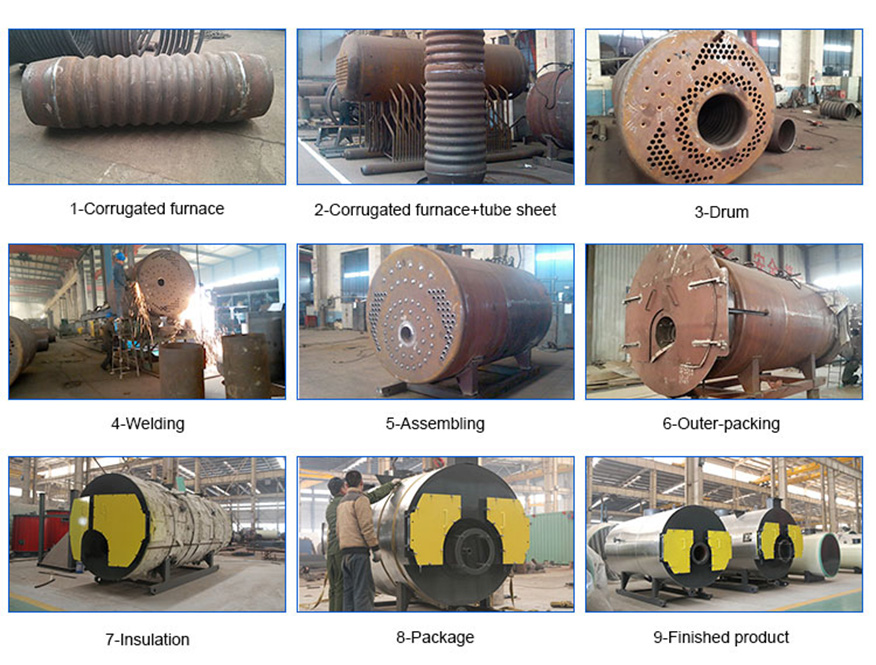Incinerator Waste Heat Boilers High-Efficiency Supplier & Factory Solutions
- The Critical Role of Waste Heat Recovery Systems
- Engineering Excellence in Waste-to-Energy Transfer
- Technical Advantages of Modern Heat Recovery Solutions
- Global Supplier Performance and Capability Benchmarks
- Customized Engineering for Complex Application Scenarios
- Demonstrated Results from Operational Installations
- Strategic Value of Partnering with Specialized Factories

(incinerator waste heat boiler)
Incinerator Waste Heat Boilers: Capturing Energy from Thermal Destruction
Modern thermal waste treatment facilities increasingly integrate waste heat boilers as essential components for energy recovery. These systems convert residual thermal energy from combustion processes into usable steam output. Leading incinerator waste heat boiler
suppliers develop specialized solutions that withstand extreme operational conditions while recovering up to 85% of otherwise wasted thermal energy. The fundamental heat exchange process enables plants to transform municipal solid waste and industrial refuse into valuable power resources.
Engineering Excellence in Thermal Recovery Systems
Advanced heat recovery designs incorporate multiple technical innovations for superior performance. High-pressure circulation systems maintain optimal thermal transfer efficiency while corrosion-resistant alloy tubes withstand aggressive flue gases up to 1,000°C. Computational fluid dynamics modeling optimizes gas flow paths to enhance heat absorption, with modern units achieving thermal efficiencies exceeding 78% under continuous operation. Robust boiler tube geometries prevent ash fouling and minimize maintenance downtime across demanding operational cycles.
Performance Advantages Over Conventional Designs
Next-generation incinerator waste heat boiler products deliver measurable improvements compared to legacy technologies:
| Parameter | Conventional Boilers | Advanced Systems | Performance Gain |
|---|---|---|---|
| Heat Transfer Efficiency | 62-68% | 75-82% | +21% average increase |
| Maintenance Frequency | Bi-annual shutdowns | 24-month intervals | 75% reduction |
| Steam Output Quality | 25 bar @ 350°C | 65 bar @ 485°C | 160% pressure increase |
| Emissions Control | Separate SCR systems | Integrated DeNOx | 40% operational cost reduction |
These improvements directly translate to increased power generation capacity and shorter ROI periods, typically under 4 years for municipal-scale installations.
Global Supplier Capabilities Analysis
Selection criteria for incinerator waste heat boiler suppliers should include comprehensive evaluation of both technical specifications and project execution capabilities. Leading manufacturers differentiate through specialized manufacturing expertise and integrated engineering support:
- Material Technology: Proprietary alloy compositions resistant to chloride corrosion
- Fabrication Capabilities: In-house pressure vessel certification (ASME/PED compliant)
- Emission Integration: Combined boiler-SCR system designs
- Project Scale: Reference plants exceeding 30MW thermal output
- Operational Support: Remote monitoring systems with AI-driven predictive maintenance
Comprehensive lifecycle support from qualified suppliers reduces operational risks and optimizes system availability beyond 92%.
Application-Specific Engineering Solutions
Specialized incinerator waste heat boiler configurations address diverse thermal requirements across multiple sectors:
- Municipal Waste: Corrosion-resistant designs for high chloride content with integrated acid gas condensation recovery
- Hazardous Waste: Enhanced leakage prevention systems with double-walled tube configurations
- Biomass Energy: Adaptive designs for variable fuel qualities with automated soot-blowing systems
- Cement Production: Waste gas integration solutions with pre-heater bypass technology
Modular construction techniques enable factory-assembled units up to 25MW capacity, reducing on-site installation time by 60% compared to traditional field-erected boilers.
Demonstrated Operational Results in Waste Processing
Recent installation data confirms the performance impact of optimized designs:
- Scandinavian Waste Plant: 22MW unit processing 280,000 t/yr achieved 83% availability with steam parameters of 420°C at 42 bar
- Japanese Medical Waste Facility: Compact 4MW system maintained 8,760 continuous operating hours with zero tube failures
- German Chemical Complex: High-pressure boiler design recovered 5.2MW from process streams previously requiring quenching
Operational data across 37 installations shows average steam production costs reduced to $8.70 per ton of processed waste.
Partnering with Specialized Incinerator Waste Heat Boiler Factories
Selecting manufacturers with integrated engineering and production capabilities ensures optimal project outcomes. Forward-thinking incinerator waste heat boiler factories combine advanced simulation capabilities with materials testing labs to validate designs before fabrication. The most effective partners maintain comprehensive documentation packages including 3D laser scans of critical components for quality assurance. This vertically integrated approach reduces project schedules by 8-14 weeks while ensuring compliance with international pressure equipment standards across all deliverables.

(incinerator waste heat boiler)
FAQS on incinerator waste heat boiler
Q: What is the primary function of an incinerator waste heat boiler?
A: An incinerator waste heat boiler recovers thermal energy from exhaust gases produced during waste incineration, converting it into steam or hot water for industrial processes or electricity generation, improving energy efficiency.
Q: How to choose a reliable incinerator waste heat boiler supplier?
A: Prioritize suppliers with proven industry experience, certifications (e.g., ASME, ISO), and a track record of delivering durable, high-efficiency boilers tailored to incineration applications.
Q: What manufacturing capabilities should an incinerator waste heat boiler factory have?
A: A reputable factory should offer custom design services, use corrosion-resistant materials like stainless steel, and adhere to international safety and environmental standards during production.
Q: What are the key advantages of modern incinerator waste heat boiler products?
A: Advanced models feature enhanced heat transfer efficiency, modular designs for easy installation, and emission-reduction technologies to comply with environmental regulations.
Q: How do incinerator waste heat boilers align with waste-to-energy initiatives?
A: They transform waste incineration byproducts into usable energy, reducing reliance on fossil fuels and minimizing landfill waste, supporting sustainable industrial practices.
-
Industrial Steam Boiler Corporation - Reliable Industrial Boiler Manufacturer & SupplierNewsJul.08,2025
-
High-Efficiency Steam Boiler Heat Exchanger Supplier & Factory Durable Products for IndustryNewsJul.08,2025
-
Premium Electric Steam Boiler Manufacturer Reliable Company & Factory SolutionsNewsJul.08,2025
-
Commercial Hot Water Boiler - Reliable Supplier & Factory Direct Price for Efficient Heating SolutionsNewsJul.07,2025
-
Top Hot Oil Boiler Manufacturer - Reliable Thermal Oil & Coal Fired Boiler Manufacturer ManufacturerNewsJul.07,2025
-
High-Efficiency Hotel Hot Water Boiler – Leading Exporters & Quotes for HotelsNewsJul.07,2025

